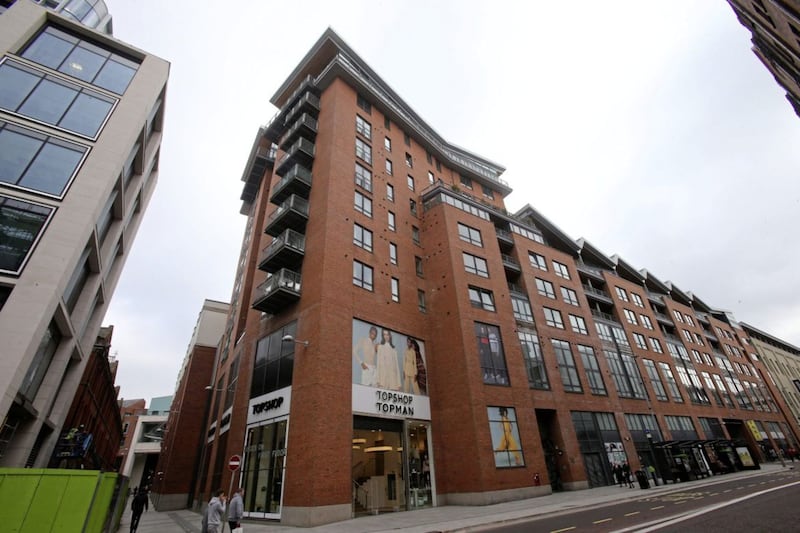“Have the referendums killed citizens’ assemblies?” the Irish Times has asked, as have many others in the Republic following this month’s surprise rejection of two constitutional amendments.
The extent to which citizens’ assemblies should be blamed for the defeats is open to debate. But the mere fact the debate is taking place has major implications for Sinn Féin, as it has put such assemblies at the centre of its campaign for a united Ireland.
The party has an interesting option to turn the debate around. Under the 2020 New Decade, New Approach deal, a civic advisory panel appointed by the executive is meant to select one issue per year for consideration by a citizens’ assembly.
The pandemic and the collapse of Stormont prevented this happening but it could now be progressed to show faith in the concept. Of course, this assumes Sinn Féin’s promotion of citizens’ assemblies is sincere.

**
This week’s sea border row has been over plastic sauce sachets and hotel toiletry bottles, which the EU is banning on environmental grounds. The protocol covers some EU environmental regulations, although not all – and not all those it applies are effective, as the condition of Lough Neagh shows.

The DUP has been criticised by other unionists and ridiculed by nationalists for denying the people of Northern Ireland the joys of tearing open little packets of ketchup. This misses a very salient point. Almost nobody objects to banning wasteful plastic packaging. There is a valid concern over democratic accountability but the DUP claims it has addressed this through the Stormont brake. As a party statement from MLA Phillip Brett explained, the DUP sees no need to pull the brake over a sensible policy it expects Britain to copy, meaning no new regulatory sea border will be created.
This was a good defence of the DUP’s position. Ominously for the party leadership, there seems to be a shortage of representatives prepared to step forward and make it.
This week’s sea border row has been over plastic sauce sachets and hotel toiletry bottles. The DUP has been criticised by other unionists and ridiculed by nationalists for denying the people of Northern Ireland the joys of tearing open little packets of ketchup. This misses a very salient point. Almost nobody objects to banning wasteful plastic packaging
**
The SDLP has submitted questions to ministers about the process used to appoint Richard Pengelly as the new interim chief executive of the Education Authority.

Pengelly, the husband of the deputy first minister, has been one of Stormont’s most senior civil servants for years. Moving him to an agency job is unusual, and there have been calls for transparency around the way he was appointed.
While answers are required, no conspiracy should be assumed. The most obvious explanation is that dysfunction at the Education Authority is so severe a trusted troubleshooter had to be brought in immediately. The real concern raised by Pengelly’s appointment is that the executive has accepted its largest public body outside the NHS is on the verge of collapse but will not publicly admit it.
**
SDLP opposition has been less constructive about the inaugural meeting of the East-West Council, the body created for the DUP under its Safeguarding the Union deal with the government.

Sinn Féin threw itself into the occasion, demonstrating generous partnership with the DUP. The SDLP responded by demanding “restoration of the North-South Ministerial Council”, with no acknowledgement it is scheduled to meet on April 8. The SDLP also accused Sinn Féin of giving “credibility” to the East-West Council “as a result of the first minister’s attendance”.
Clearly, it is not just unionists who Lundy their opponents.
**

The TUV has asked Dublin Airport to apologise and remove a tweet that mocked the Prince and Princess of Wales for poor photo editing. However, the tweet was posted before the princess revealed her cancer diagnosis and does not warrant much outrage. If unionists have a legitimate grievance it is that Gatwick, for example, could not make a harmless joke about President Higgins without causing a complete sense of humour failure in Ireland. Much of the outrage in this scenario would come from the same people defending Dublin Airport.
**

Residents of Belfast’s Victoria Square apartments are to have their rates refunded back to 2019, when the building was evacuated due to structural faults. Arrears will be written off and legal action by Land and Property Services (LPS) suspended.
One apartment owner has told Radio Ulster she was warned about bailiffs and had imagined people turning up to seize furniture, only to find out later there are no bailiffs in Northern Ireland.
It is true we have no bailiffs as in England and Wales. We do have court officers who can enforce judgements but in most cases they settle debts by arranging a repayment plan. The distinction can be confusing and if people get the impression we have bailiffs, not every collection agency will rush to correct them – but LPS should do better. If it has been adopting more aggressive tactics, they are hardly a success. Unpaid rates are running at £20 million a year or 10 per cent of all bills, with a total of £175 million outstanding.
**
Chief constable Jon Boutcher has welcomed a 7 per cent pay award to PSNI officers. The decision by the departments of justice and finance has not been in much doubt since last December, when Boutcher told the Policing Board he would implement it whether or not the £20 million cost was added to his budget.

“If I have to step into a position where I am breaching my accounting officer responsibilities and the board and the Department of Justice decide they will have to sanction me, then we will get into that territory if we need to,” he said.
If more public servants had taken this approach to ‘indirect rule’, it would have lasted for months rather than years.
**

A Belfast man has been remanded into custody after being accused of phoning for an ambulance 44 times in four days, but then refusing to go to hospital. Paramedics had to attend every call.
Similar cases crop up regularly, causing significant disruption to an already-stressed life-saving service.
It is neither ethical nor practical to ban people from calling an ambulance, nor is it practical to expect the courts to stop them. The only solution is for front-line staff to have discretion to use their own judgement and to be given confidence that management will have their backs, rather than running a system whose first priority is covering backsides. But of course that is not how NHS management works.


